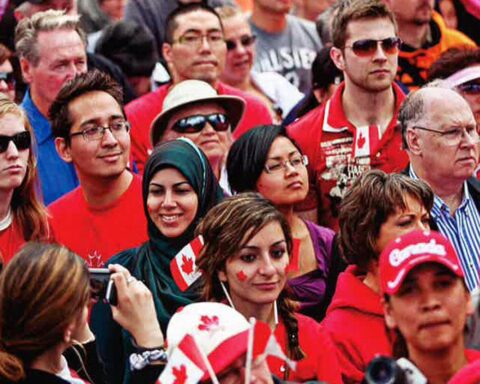This weekend would mark roughly the end of a “normal” modern Canadian election campaign, which tended until now to last around 36 days.
This time, the Conservatives cranked it up to 11 (weeks) with one of the longest campaigns in Canadian history. It’s not even at the half-way mark yet. And it’s a test-case that political scientists are watching with interest.
Richard Johnston, a political science professor at UBC, said those who have studied campaign lengths — mostly academics in the U.S. — would say long campaigns aren’t bad in themselves.
“[Longer campaigns] maximize the probability that all the stuff will get out on the table.”
“There’s a kind of notion that in an ideal world, what a campaign would do is basically burn off the bullshit, the character assassination and this sort of stuff, and at the end of the day focus voters’ minds on fundamental issues,” he said.
He also suggested that longer campaigns like this one might actually be ideal compared to the typical 35-37 day period.
“They maximize the probability that all the stuff will get out on the table.”
Studying ideal campaign lengths
While some have argued that voters find long campaigns tiring, Johnston said there’s not much evidence for that.
“There’s a kind of limited bandwidth for people. They kind of wake up, depending on the context, a month or so to go. I don’t think people will be fatigued by stuff that happens now.”
“Campaigns that are shorter than about 45 days, we find, may not be long enough to fully give voters an opportunity to hear various messages.”
Randy Stevenson, a political science professor at Rice University, co-authored a study on campaign length. He wrote: “Shorter campaigns may produce ‘happier’ voters, in the sense that they don’t watch leaders attacking each other for so long; but shorter campaigns may also produce less ‘enlightened’ voters who don’t know as much about the candidates and issues facing them.”
He said that most voters need a campaign of at least six weeks, or 40 to 45 days, to inform themselves of the issues.
“Campaigns that are shorter than about 45 days, we find, may not be long enough to fully give voters an opportunity to hear various messages,” he said, adding that campaign resources and media access for parties needs to be relatively balanced for that timetable to work.
Power of money
Costas Panagopoulos, political science professor at Fordham University, said there’s still not much research on campaign timing and length, and a lot of it is based on U.S. elections.
“We really don’t have as much information as we ought to have about campaign length and how it affects all kinds of political variables, especially in a cross-national perspective.”
The problem with this long campaign, some critics have charged, is that the conditions favour the Conservatives, who have the biggest war chest.
He says there’s always the hope that longer campaigns will “allow greater opportunities for challengers and political newcomers to become better known within the electorate and put up a serious fight against incumbents or politicians … (but) that’s not always the case.”
The problem with this long campaign, some critics have charged, is that the conditions favour the Conservatives, who have the biggest war chest.
Johnston said the key moment to watch for will be when the Conservatives opt to spend their stacks of cash on their biggest media buy of the campaign.
“So if they succeed in this, it will be a test case on the power of money, particularly for advertising.”
Published in partnership with iPolitics.ca.




